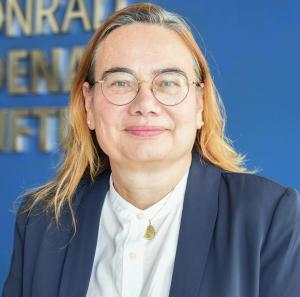Regional Security Dilemma: Trends, Directions, and Illusion | មានជាខេមរភាសា
Humanity in the 21st century has witnessed many unprecedented challenges which pose potential threats not only to international security at large but also to states and individuals. They range from the Covid-19 global pandemic and recovery effort, the increasingly intense great power rivalry that also encompasses the strategic and economic role of middle powers, the Russia-Ukraine War, the Myanmar political crisis, and the issue of the Korean Peninsula, and so forth.
Diplomatic Briefing's fifth volume sheds some useful light on these issues, as it brings fresh perspectives on such timely security challenges. The situation in Ukraine seems to be the most intense conflict in the 21st century, overshadowing the wider international security debate. As Nataliya points out in the Cover Story, this is no longer a purely European security issue, as the wider spill-over effects are clear, including that of a food and energy crisis in ASEAN and in various other regions. US-China strategic competition also remains a relevant topic, with such contestation growing even more intense in recent times. We are now witnessing the increasing assertiveness of China and its soft-power projects, such as the BRI, coupled with a stronger US-led alliance system and minilateral mechanisms. Moving on from this major concern, this volume also discusses the role of the middle powers and small states in international affairs, including India’s economic influence in the Indo-Pacific, Cambodia’s current ASEAN Chairmanship in 2022, and Indonesia’s incoming ASEAN Chairmanship in 2023.
In Southeast Asia, external threats have pushed ASEAN to a crossroads in which its member states must do more to ensure ASEAN's relevance and centrality in the future. This is not to mention the significant internal threats faced by the bloc, such as the Myanmar crisis, the post-pandemic economic recovery, the change of political leadership among ASEAN member states, and so on. From Europe to Asia, from diplomats, policy-makers, and academic researchers to young IR scholars, the divergence of perspectives is highlighted in this platform. In doing so, we have noted that complex security issues always require a degree of common ground to work towards a peaceful resolution, as well as to maintain the rules-based international order. Hence, this volume highlights the need for closer cooperation among major, middle, and small states.
Click here to read on your PC (.pdf Version)
Click here to read on your Tablet (.epub Version)
Authors and Content

“International sanctions are not the reason for the current crisis. The reason is that Russia is waging war on Ukraine and thus ruining the economy and society of one of the top world food producers, disrupting global trade, violating numerous international and bilateral agreements, and neglecting its own obligations as a member of the UN Security Council. The longer the war continues, the deeper the crisis will become and the graver the consequences.”
In the cover story, Nataliya Zhynkina, Deputy Ambassador of Ukraine to Vietnam (accredited to Cambodia), provides an insight into the current situation in Ukraine after the invasion of Russia, as well as its spill-over effects to ASEAN. She stated that a united and clear response from the world to aggression in international relations is necessary as we are all interconnected and must work together to meet to challenges of building a crisis-resistant world order, a system in which ASEAN plays an important role.
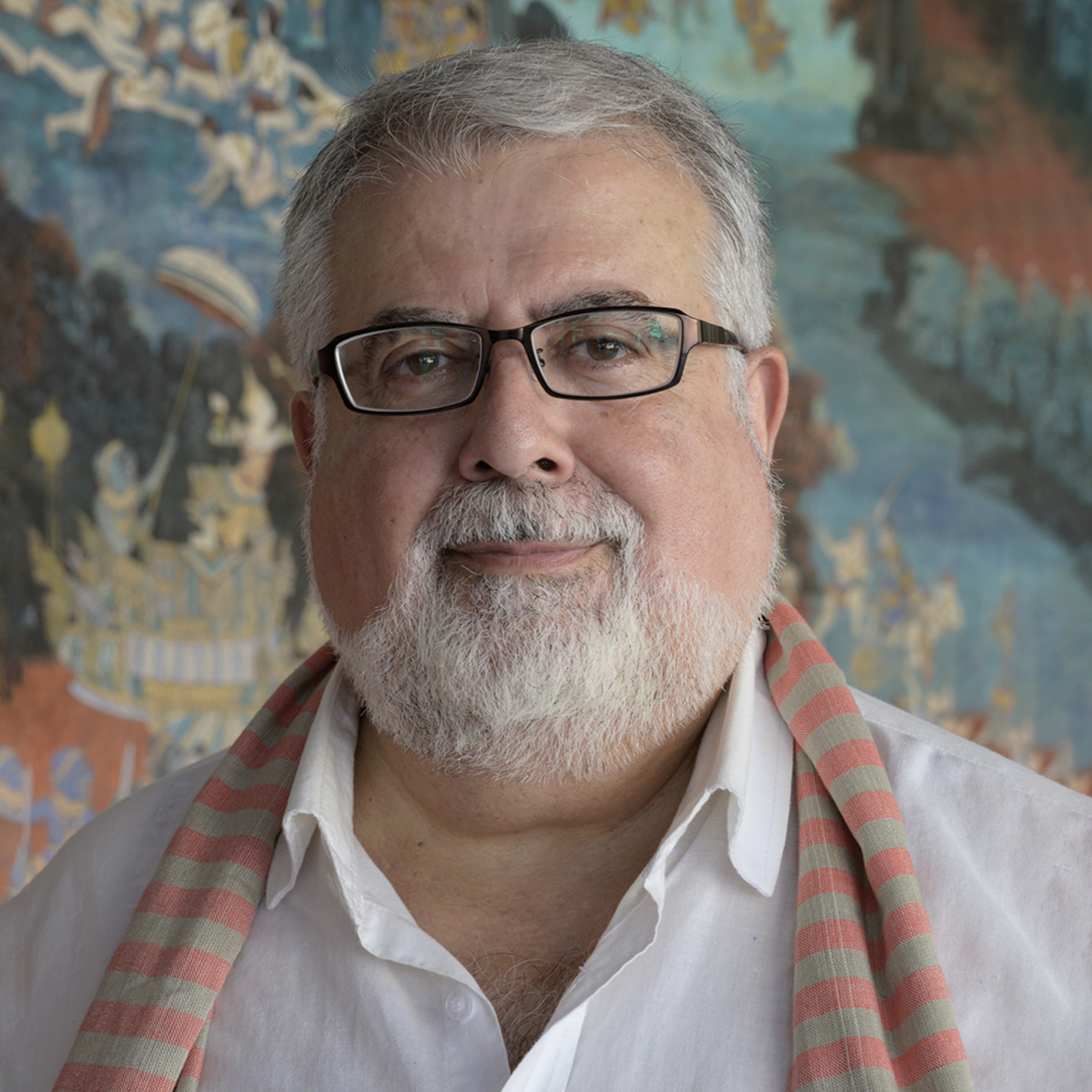 “Today, Cambodian relations with China are as strong as ever. The two countries upgraded their bilateral relations and signed a Comprehensive Strategic Partnership of Cooperation in December 2010. Cambodia’s close relationship with China has come at a cost nevertheless. Meanwhile, the very successful visit of Vietnamese President Nguyen Xuan Phuc to Cambodia in late 2021, is an indication that the bonds between Cambodia and Vietnam remain unaltered. However, there are ongoing issues that continue to pose challenges to the relationship….”
“Today, Cambodian relations with China are as strong as ever. The two countries upgraded their bilateral relations and signed a Comprehensive Strategic Partnership of Cooperation in December 2010. Cambodia’s close relationship with China has come at a cost nevertheless. Meanwhile, the very successful visit of Vietnamese President Nguyen Xuan Phuc to Cambodia in late 2021, is an indication that the bonds between Cambodia and Vietnam remain unaltered. However, there are ongoing issues that continue to pose challenges to the relationship….”
Ambassador Julio A. Jeldres provides a historical perspective of Cambodia’s relationship with China and Vietnam. He added that the current challenge for the Cambodia-China relationship is that the other ASEAN countries have been critical of Cambodia’s muted reaction to China’s action in the South China Sea. Meanwhile, despite the strong bond with Hanoi, land demarcation remains a politically controversial issue, often used by the exiled opposition to attack the government, even though 84% of the Cambodia-Vietnam border has already been demarcated.

“A community with a shared future for mankind” is shaping the regional order both materially and normatively. China is seeking to revise international norms and rules which do not reflect emerging Chinese interests and instead promote new norms and rules that better serve its interests."
Dr. Chheang Vannarith, Director of Think Tank 2022 Asia-Pacific Secretariat, explains that the concept of “building a community of shared future for mankind” is compatible with Cambodia’s foreign policy objective of promoting a new era of international relations. He mentioned that this concept is thought to help Cambodia realize its own national interests, including peace, prosperity, prestige, and a long-term economic vision.
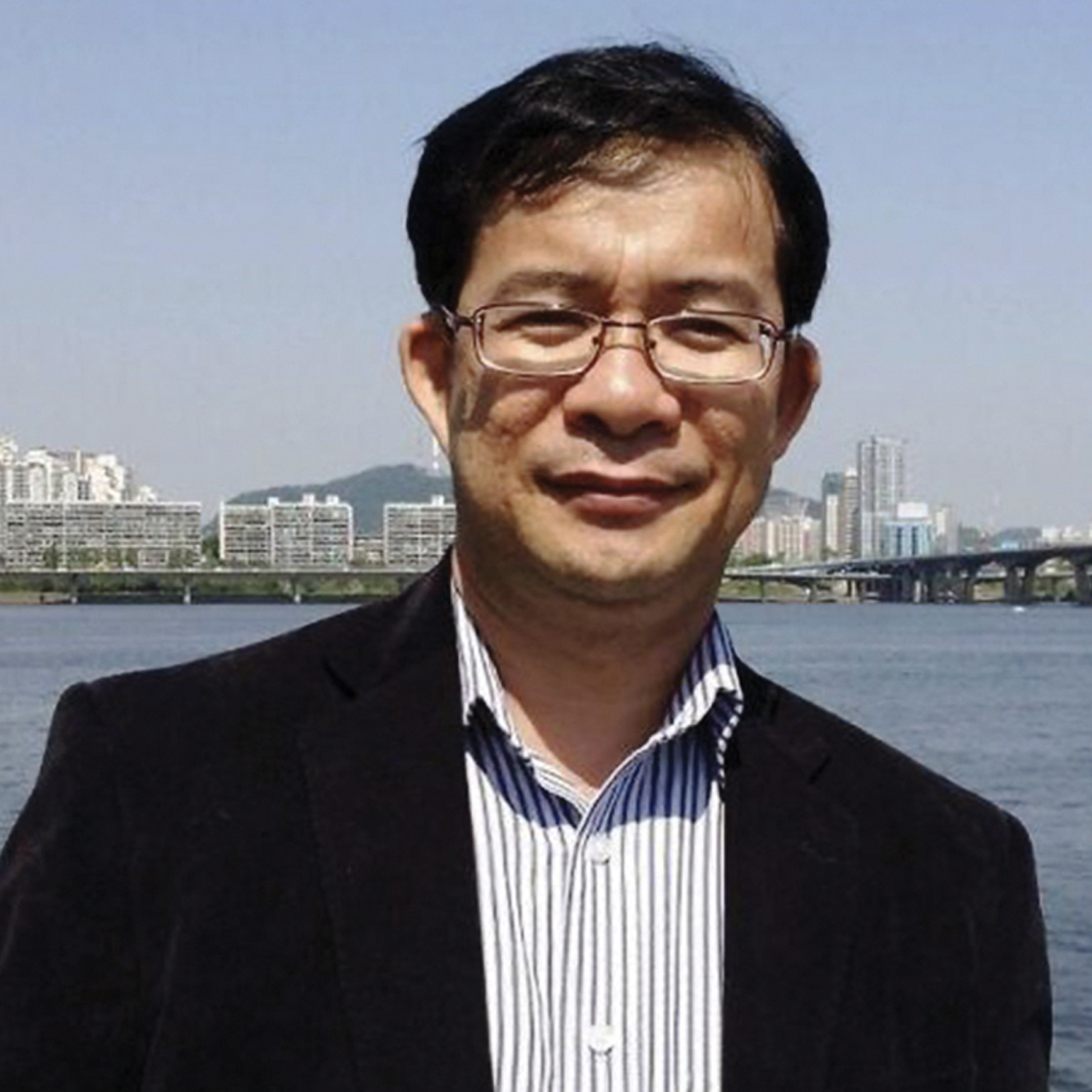
“Cambodia has embraced China’s BRI thanks to the strategic option this small Kingdom has, mutual political trust between Beijing and Phnom Penh, and the country’s commitment to the 21st Century Maritime Silk Road plan in the coastal city of Sihanoukville”
Dr. Neak Chandarith and Lim Chhay used the case study of the planned Multipurpose Sihanoukville Special Economic Zone, based on a preliminary study in which China’s Shenzhen is used as a model. After all, they argued that although the presence of the BRI in Cambodia appears to be part of China’s geoeconomics strategy in Southeast Asia, it also provides the Kingdom the ability to make Sihanoukville the engine house driving wider national developments.

"The rise of “wolf warrior” diplomats aggressively promoting Beijing’s narrative, Confucius Institutes, panda bear gifts, “vaccine diplomacy” and more show that China’s manifold soft power efforts in ASEAN and beyond are expanding and intensifying. They range from investment and media outreach to varied forms of diplomatic, academic, professional, and cultural exchange, to medical aid and humanitarian assistance."
Dr. Celine Caro, resident representative of KAS Thailand, assesses the China's soft power projection in selected ASEAN countries, based on a regional study conducted by Konrad-Adenauer-Stiftung, which shows that more than half a decade later, the Chinese leadership continues to implement the same playbook with its five neighbours in Southeast Asia. It uses top-down methods to try to control information and opinions about China in the region, without enabling individuals, the private sector, or Chinese civil society to participate freely in the process.

"It is worth noting that the US and China have repeatedly stated support for ASEAN in terms of maintaining and enhancing its centrality. However, one should not take this statement at face value. A deeper assessment is needed. From an optimistic perspective, US-China competition over the past 10 years has demonstrated that such a rivalry is necessary for the maintenance of peace and prosperity in the region."
Sovinda Po, research fellow of CICP, explains US-China competition in ASEAN by offering two recommendations for ASEAN to manuveur through such ravaliry: First, more developed ASEAN member countries should encourage greater economic interaction with their less developed partners. Second, in the short and medium-term, ASEAN must engage all powers, not just the US and China, in order to play a stabilizing role in the US-China relationship. This includes Japan, South Korea, India, Australia and the European Union.

"China could help by providing third-party market cooperation in Southeast Asia. Currently, China has signed documents on third-party market cooperation with several countries, such as France, Italy, Japan and the UK."
Prof. Dr. Yang Yue, Professor at Institute of Asian Studies (China), gives an insight on current status of ASEAN-China Relations. With the current challenges all states are facing, ASEAN has been seeking to expand its external partnership in order to create more geostrategic space for maneuvering. With the expansion of its external partnerships, ASEAN on one hand feels under-resourced to manage such a big circle of friends2. On the other hand however, it also seeks to determine how to identify the most appropriate means to engage such partners in order not to create a competitive tendency among them and maximize the benefits from partnership.

"Due to the Myanmar crisis and the currently evolving Russia-Ukraine war, the ASEAN Treaty of Amity and Cooperation (TAC) is becoming an important regional instrument to promote ASEAN’s fundamental principles as potentially binding principles for all the fifty signatories. The six principles outlined in the TAC are very useful for ASEAN in conducting its collective diplomacy."
Kavi Chongkittavorn, senior fellow at the Institute of Security and International Studies (ISIS) Thailand, answers the question: Does ASEAN have the capacity to help end the recent conflict and bring about normalcy to this war-torn country?

"Jakarta will need to find an effective formula not only to revitalize but also to secure the relevance of an ASEAN-driven forum. In doing so, Jakarta will also need to deal with domestic sceptics of ASEAN effectiveness in dealing with strategic issues in the region, including the South China Sea disputes and the possible cross- strait clash between China and Taiwan."
Andrew Wiguna Mantong, researcher at Department of International Relations Centre for Strategic and International Studies (CSIS-Indonesia), asses the dual challenges for Indonsia being the next ASEAN Chair in 2023, structual and internal presssures.
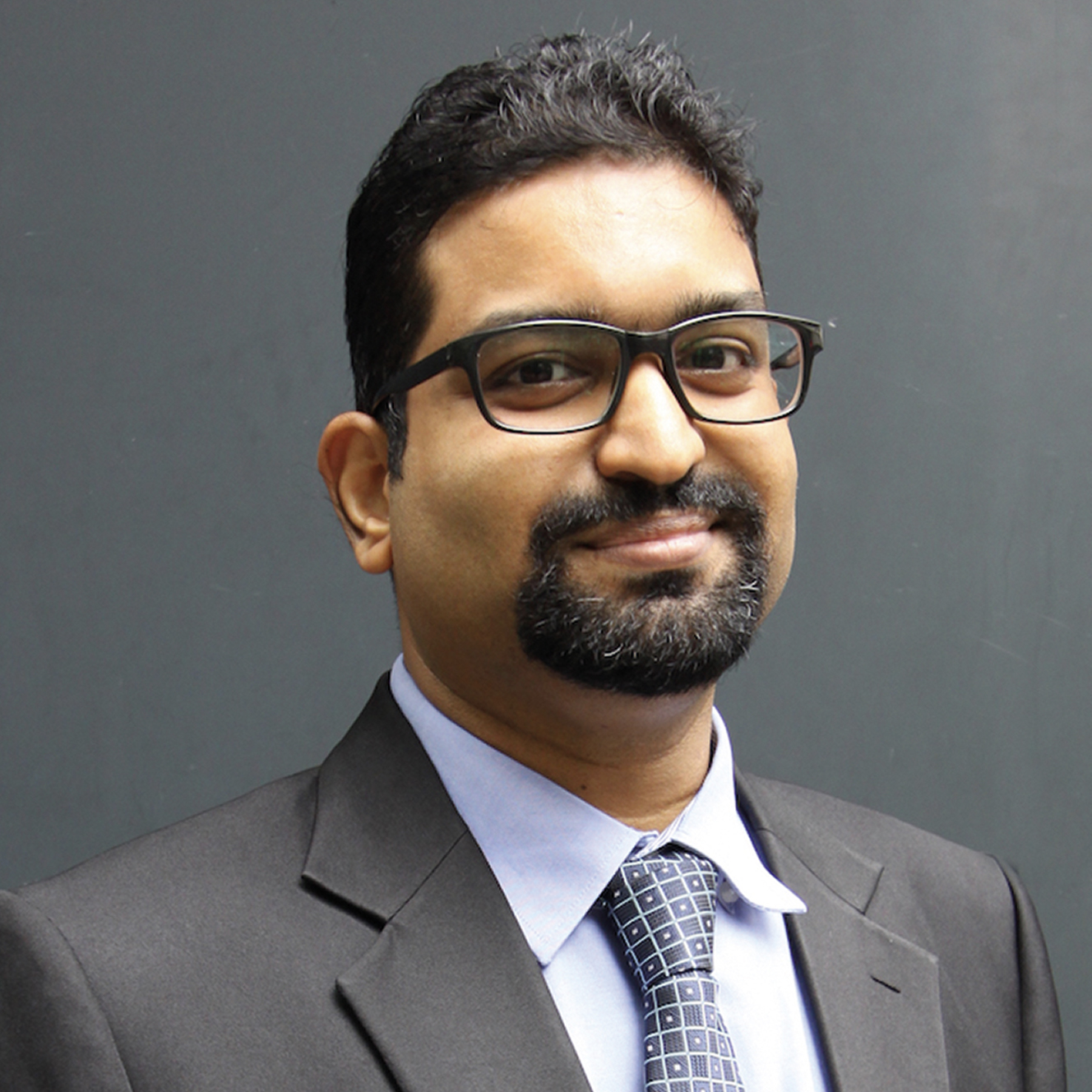
"Broader questions remain on how Malaysia and its policy makers perceive the country, its identity, its position, and its strategic advantages (and challenges) in an evolving regional order marked by major power rivalry and growing uncertainty. While political stability will go some way to stabilising the policy making environment, there remain difficult questions and decisions that Malaysia will have to address in the foreseeable future."
Thomas Benjamin Daniel, Senior Fellow, Institute of Strategic and International Studies (ISIS) Malaysia, explains the foreign policy implications from the Malaysian internal politics. He said when The Pakatan Harapan (PH) coalition fell, Malaysian foreign policy has largely been characterised by three key trends. Find out those 3 in his article.

"Aside from depending on traditional politicians, conducting a typical campaign with a transactional relationship with voters, and focusing on the message of “unity”, analysts point to Marcos Jr.’s strategy of propaganda, misinformation, and disinformation (PMD) as the main reason for his win (and the money and machinery required)."
Marie Antoinette P. de Jesus gives a critical analysis on disinformation and misinformation during the election campaign in the Philippine Elections 2022. She tries to explain a few questions: How did Marcos, Jr. do it? Why did he win when he was almost always absent during sponsored Presidential debates, when he lies about his educational degree,when his family has billions of pesos of estate tax liabilities, when his family is affluent, largely because of ill-gotten wealth, and when his father’s Martial Law created a negative snowball effect on the country’s economy, governance, and human rights?
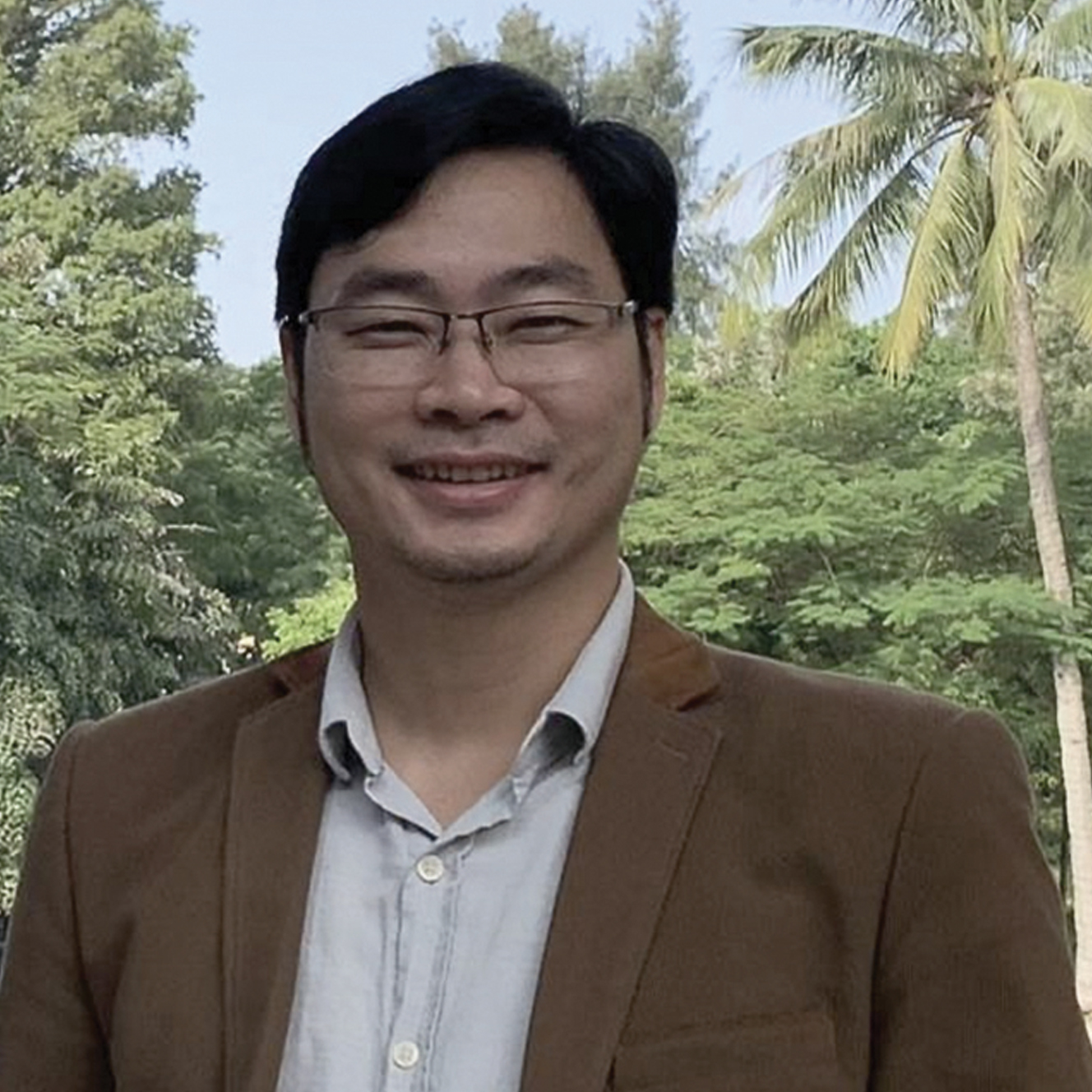
“All countries must firmly thwart disturbances to the negotiation process. Major powers must ensure they engage only in responsible forms of competition. Power politics, muscle flexing, coercion, intimidation, militarization and fortification should be abandoned. All countries concerned must earnestly maintain peace, security and cooperation, exercise self-restraint, and refrain from any provocative actions that complicate the situation or violate either the littoral states’ exclusive economic zones (EEZs) and continental shelves or the international law.”
Dr. Pham Duy Thuc, senior researcher at the East Sea (South China Sea) Institute, the Diplomatic Academy of Vietnam (DAV), stated that ASEAN and China must find a way to reconvene face-to-face meetings. Both sides have flexibly held prior meetings through virtual platforms, resulting in the previously mentioned provisional agreement on the preamble section. It is an encouraging progress, paving the way for future physical meetings as they remain the primary modality of COC negotiations, since its contents are crucial and confidential.

“While the Indian government has consistently expressed skepticism about possible benefits from tariff reductions, and showed concern in particular about its dairy and other sensitive agricultural sectors during RCEP negotiations, a major reason for its eventual refusal to join is unquestionably the general belief of the Indian political class that the agreement is centred around the export powerhouse that is the People’s Republic of China.”
Mihir Swarup Sharma, Director Centre for Economy and Growth Programme (India), offers an insight of India's economic influence in the case of RCEP. He sheds the light on the reason India’s refusal to join RCEP based on trade hesitation (unipolar Asian economic order) especially in the context of large economic programs such as BRI and border geopolitical hesitation.


“The reaction to the recent aggression of the Russian nuclear power, in violation of international law, leads to the conclusion that in the face of such broad conflict, middle powers in particular must strengthen their foreign policy strategy capabilities in order to build effective resilience.”
David Gregosz, resident representative of KAS Poland, and Thomas Behrens, project coordinator, used the case of Switzerland, Austria and Poland to study their diverse wide range of middle power type and foreign policy strategies. They concluded that a comparatively relative, limited international influence as a middle power does not necessarily lead to uniform or analogous foreign policy strategies.


“In 2012, a massive cyberattack against the national authorities was conducted by two foreign hacking organizations, NullCrew and Anonymous. As a result, highly confidential correspondence and access details from multiple critical branches of the political and military establishment were made available online.”
Vichy Chanchem and Peter Bozakov explained how administrative digital assets that Phnom Penh has been employing leave a lot to be desired in terms of reliability and security. The fact that officials still often rely on informal and publicly accessible networks to establish channels of interaction and engage in informational exchange can make the most sensitive RGC’s operation vulnerable to cyber sabotage.

“RCEP, CPTPP and IPEF together represent a contest between two strands of power in Asia-Pacific regional economic cooperation. One is the demand of regional countries, especially developing countries, to strengthen economic integration and achieve common development, while the other is the “high standard” cooperation model strongly implanted by the US.”
Zhang Weiwei, Deputy Director and Associate Researcher, Department of International Strategic Studies, China Institute of International Studies, discussed the three economic cooperation mechanisms that reflecting on the two forces currently shaping economic cooperation in the Asia-Pacific region. First, RCEP is distinctly endogenous, while CPTPP and IPEF have a strong US imprint. Second, the nature and objectives of the mechanisms are different. Third, the focuses of the mechanisms are different.

“The bond between Cambodia and the DPRK results from the good relations established between King Norodom Sihanouk and Kim Il-sung during the 1960s which have been maintained ever since. This has made Cambodia one of the few countries in the world to have a unique relationship with North Korea that is based on bilateral ties rather than geopolitical and geo-cultural interest, creating room for the Kingdom to further engage with the DPRK.”
Ek Bunly, research fellow at CICP, stated that about the challenges that ASEAN and Korea face by having different “threat perception”, the current relationship only confined to the economic rather than the security realm, and the current focus is occupied with the Russia and Ukraine war rather than Korea Peninsula.


“August 2nd, 2021 marked a historical milestone between ASEAN and the United Kingdom (UK), as ASEAN officially conferred the status of “Dialogue Partner” to the UK. Perhaps best summed up by the phrase “old wine in a new bottle”. The ASEAN-UK partnership focuses on defense, transnational crime, and cybersecurity by sharing techniques and ensuring the mutual protection of regional peace with the respect of ASEAN centrality.”
Chhuon Vanndasambath and Cheng Ousa highlighted the remarkable milestone between ASEAN and the UK, the area of focus, the future direction and the recommendation for this regional cooperation. They mentioned that the UK needs to work closely with ASEAN in the Indo-Pacific to realize its Indo-Pacific Tilt and Global Britain strategies in a new competitive age.
Let us know what you think and pick up your hard copy at our office. Contact person: Mr. Lim Chhay, Program Manager for Foreign Affairs, Chhay.lim@kas.de



